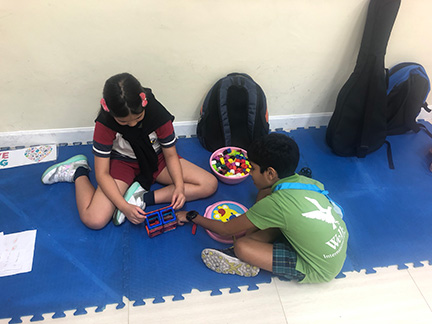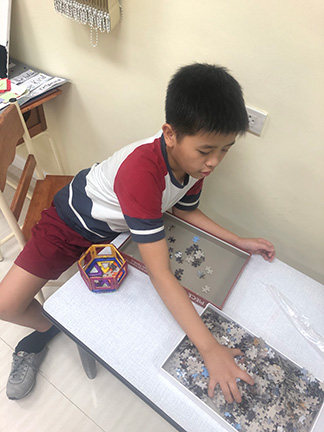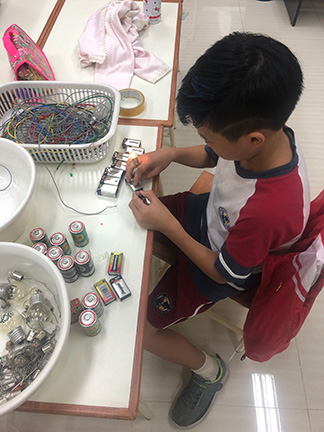Implementing Agency by Russell Coffin, Grade 5 Teacher
Our grade 5 classroom has a different feel to it this week as instructors return from a professional development course that convened at NIST over the weekend of the 21st of September. One of the key takeaways from this professional development seminar was the importance of personal student agency in the classroom. Agency is the idea that learners should have the capacity to act on their own environment, I.E. control.A small example of agency might be choosing their own seating arrangement, or deciding if they want to do their school work in pen or pencil. Grade 5 is experimenting with very high-engagement forms of agency, such as letting the students give input on their daily timetable of units, or decide how they want to engage with a writing assignment.During a unit on problem solving skills, learners were asked how they wanted to tackle developing their problem solving skill set. As seen in the photographs attached, students had a wide variety of perspectives on what “problem solving” looked like for them. Two students worked on the whiteboard doing brain teasers. Two other students worked on building a stable tower. One student worked on lighting light bulbs with batteries and wires, while yet another student decided to solve a large and intimidating puzzle.
This sort of agency in the classrooms gives students an increased sense of ownership over both the activity at hand and the results of that learning module. Experiments in increased agency are positive so far, and we look forward to seeing how else our students can leave their personal mark on the instruction of the day.


